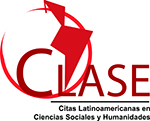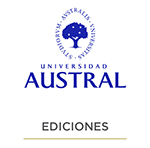Trade Secret Made in Paraguay: the Scope on Labour and Criminal Law
Abstract
In Paraguayan Law there is not a single norm which regulates the confidential information that should be kept “in secret”. Instead, there are several regulations on the “confidential information” that should be kept “in secret”. Moreover, these different regulations come from different areas of the legal arena, as the Civil Law, Labor Law, Criminal Law and Public Law. Furthermore, in Paraguayan Law there are known several “levels” of secrecy, namely, “professional secrecy”, “industrial secrecy”, “business secret”, “trade secrets”, “classified matters”, etc. Even though these names suggest a unique o at least a similar protection. But in fact, these “levels” of secrecy differ in its legal protection, namely in its scope as in its quality.
In this work the “legal secrecy obligation” will be analyzed from both the Labor Law and Criminal Law points of view, taking in consideration the ‘General Principles of Law’ and the rules of other legal areas like Civil Law or Public Law, aiming the proper reach of the labor and criminal regulations on the “legal secrecy obligation (considering the fact that “trade secrets” sometimes are not the same as “professional secrecy” and so on).
Downloads
References
Agüero-San Juan, S. (2015). Las antinomias y sus condiciones de surgimiento: Una propuesta para los enunciados normativos. Revista de Derecho, 28(2), 31-46. https://doi.org/10.4067/S0718-09502015000200002.
Barr, L. D. (1987). Whose Dispute Is this Anyway: The Propriety of the Mini-Trial in Promoting Corporate Dispute Resolution. Journal of Dispute Resolution, 1987(11).
Carbonell, M. (1997). Los objetos de las leyes, los reenvíos legislativos y las derogaciones tácitas. Notas de técnica legislativa. Boletín Mexicano de Derecho Comparado, 1(89). https://revistas.juridicas.unam.mx/index.php/derecho-comparado/article/view/3482/4120.
Ferrajoli, L., Moreso, J. J. y Atienza, M. (2009). La teoría del derecho en el paradigma constitucional (2a ed.). Fundación Coloquio Jurídico Europeo.
Fidealis (s.f.). La protección del secreto comercial. https://www.fidealis.com/es/propiedad-intelectual/de-decreto-comercial/.
Frier, P. L. y Petit, J. (2015). Droit administratif (10a ed.). Lextenso.
González Macchi, J. I. (2008). Introducción al Derecho Penal Paraguayo (4a ed.). Intercontinental.
González Magaña, I. (2013). Los límites del secreto profesional frente a la obligación de denunciar que la Ley N° 24.417 impone a los profesionales de la salud. Revista de Derecho de Familia y Sucesiones, (1). https://ar.ijeditores.com/pop.php?option=articulo&Hash=5c9f498d26d08e3528eed3dd121b651c.
Hasan, C. (2009). Rent-a-judge (Tesis de maestría). University of Lund, Suecia. https://lup.lub.lu.se/luur/download?func=downloadFile&recordOId=1558154&fileOId=1564559.
Iturralde Sesma, V. (1998). Consideración crítica del principio de permisión según el cual “lo no prohibido está permitido”. Anuario de filosofía del derecho, (15), 187-214.
Mendonca, D. (2008). Análisis constitucional. Una introducción. Intercontinental.
Organización Mundial de la Propiedad Intelectual. (s.f.). Secretos comerciales. https://www.wipo.int/tradesecrets/es/index.html.
Real Academia Española. (s.f.). Diccionario de la lengua española. https://dle.rae.es.
Segovia Cabrera, M. E. (2014). La obligación de guardar secreto profesional frente a la obligación de denunciar. Revista Jurídica. Investigación en Ciencias Jurídicas y Sociales, (4), 89-114.
Seiller, B. (2016). Droit administratif. Les sources et le juge (6a ed.). Champs.
Villagra Maffiodo, S. (2011). Principios de Derecho Administrativo (4a ed.). Servilibro.
Weingarten, C. y Ghersi, C. A. (2011). Responsabilidad de los peritos judiciales. Revista SIDEME, (7).
Copyright (c) 2022 Pedro Lacasa

This work is licensed under a Creative Commons Attribution-NonCommercial-NoDerivatives 4.0 International License.
This license allows the copy, distribution, exhibition and representation of the work provided authorship is acknowledged and the work is properly quoted. Commercial use of the original work or the generation of derived works are not allowed.
The authors hereby guarantee the right to the first publication of the work to the Revista Iberoamericana de la Propiedad Intelectual.












































